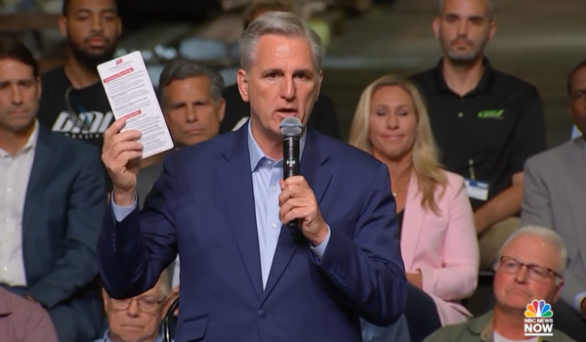
Lifting Sanctions – A Slap in the Face to Syrians
By Marah Bukai
Congressman, Michael McCaul, along with Senator, James Risch, have released a statement in response to the Biden administration’s “general license” related to Syria, criticizing the Biden administration’s decision to authorize direct transactions with the Assad regime in the name of humanitarian relief, calling the act “a slap in the face to the Syrian people”.
The statement stresses that the lift of sanctions for six months will “open the door to the regime pilfering aid and will be abused to create a pathway for normalizing relations with the Assad regime”.
According to the Biden administration’s perspectives, could potentially help the people of Syria who are struggling under a failed economy, by allowing resume trade and financial relationships with the rest of the world. This could lead to increased investment and job opportunities, which could improve the standard of living for all Syrian people with no exemptions.
Yet, lifting sanctions has negative consequences as well. It would provide the Syrian government with access to additional resources that it could use to support its military activities and maintain its oppressive rule over the country. Additionally, lifting sanctions could signal a weakening of the international community’s commitment to holding the Syrian government accountable for its human rights violations and other abuses.
Such a decision to lift sanctions on Syria should have been made in the context of a broader strategy to promote peace, stability, and human rights in the country. This may require a combination of diplomatic pressure, targeted sanctions, and support for civil society organizations working to advance these goals.
it is a fact that lifting sanctions on Syria could potentially help with earthquake disaster relief efforts by allowing for increased economic activity and investment and could result in more resources being available for the government and international organizations to respond to the disaster and provide aid to affected communities.
Meantime, it is critical to note that the lifting of sanctions alone may not have a significant impact on disaster relief efforts. The international organizations may still face significant logistical and security challenges in delivering aid to affected areas, and the country’s ongoing conflict and political instability may continue to impede the delivery of aid.
In order to effectively respond to a disaster such as an earthquake in Syria, it will likely require a coordinated effort by the international community, including the provision of financial and logistical support, as well as political engagement to ensure that aid is delivered to those in need in a safe and effective manner.
The decision to lift sanctions on a country can be seen as a complex issue that depends on a variety of factors and considerations. In the case of Syria, lifting sanctions could be perceived as a sign of weakness by some if it is not accompanied by a broader strategy to promote peace, stability and human rights in the country. One could see the picture as a calculated decision by the US government as part of a broader diplomatic strategy.
Ultimately, the decision to lift sanctions should be based on a careful assessment of the potential benefits and risks and must be part of a broader strategy to advance US interests and promote stability and human rights in Syria and the region.
In the best scenario, we hope that the lifting of sanctions is not necessarily an indication of obedience to the Syrian regime’s blackmail, but rather a complex and comprehensive foreign policy decision made after careful consideration of a range of factors.
In the case of the Syrian regime taking advantage of the earthquake disaster to end the boycott, it is important for the US and the international community to take a multi-faceted approach to ensure that the Syrian government is held accountable for its actions during the conflict and its response to the disaster. This may involve a combination of diplomatic pressure, targeted sanctions, and support for civil society organizations working to promote peace, stability, and human rights in the country.
One key element of this approach could be to ensure that any aid provided to Syria in the wake of the earthquake is delivered in a transparent and accountable manner and that it does not benefit the Syrian government or its security forces at the expense of ordinary citizens. This could involve working with international organizations, such as the United Nations and U.S. partners of civil society on the ground, to ensure that aid is delivered through established channels and that it reaches those who need it most.
In addition, the US and its partners should continue to press the Syrian regime to end its human rights violations and other abuses and to engage in a meaningful political process to resolve the conflict and bring an end to the suffering of the Syrian people. This may involve leveraging economic and political pressure, as well as supporting civil society organizations and other actors who are working to promote peace and stability in the country.
Overall, it is important to approach the situation in Syria with a clear and comprehensive strategy that takes into account the complex and interconnected challenges facing the country, and that seeks to promote justice, peace, stability, and human rights for all Syrians.
Unfortunately, such a bold and strong strategy that allows for dealing fairly with the Syrian political and humanitarian misery yet needs to be developed. While time is running out, the world remains in failure to add any improvement that could be reflected in Syrian lives!
